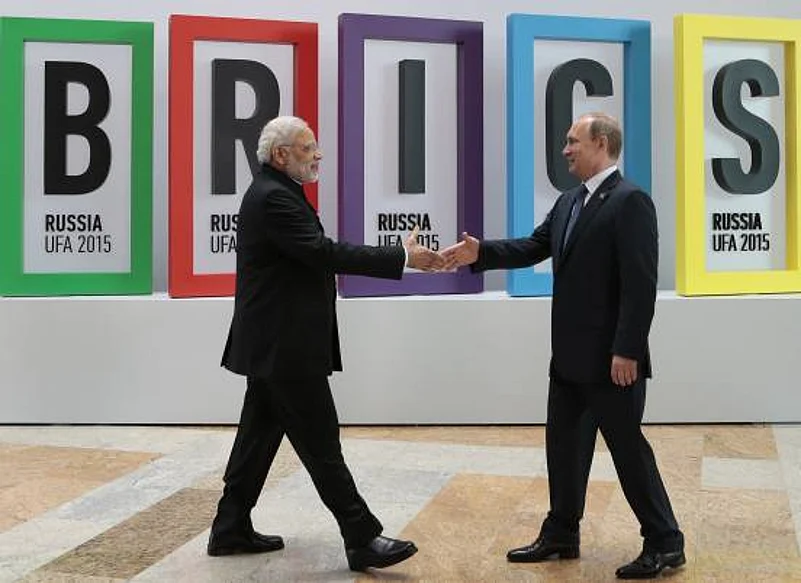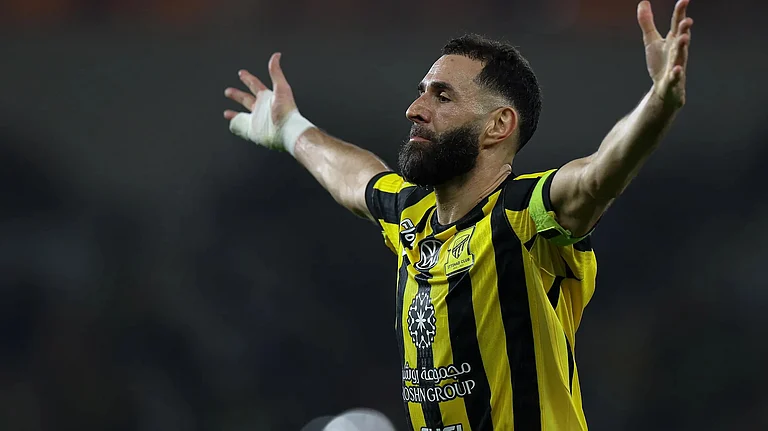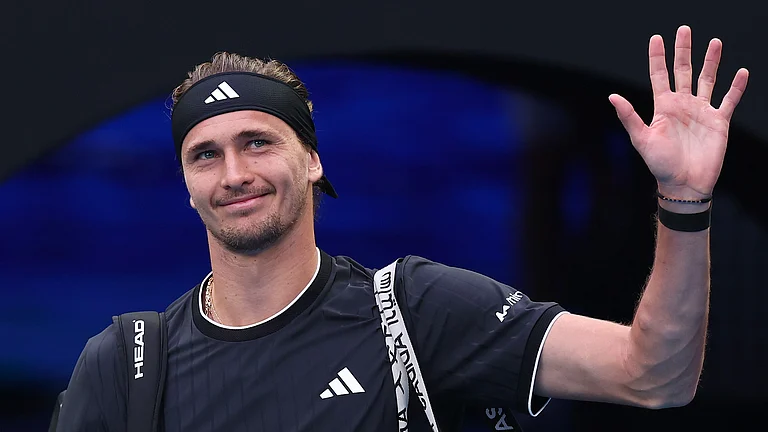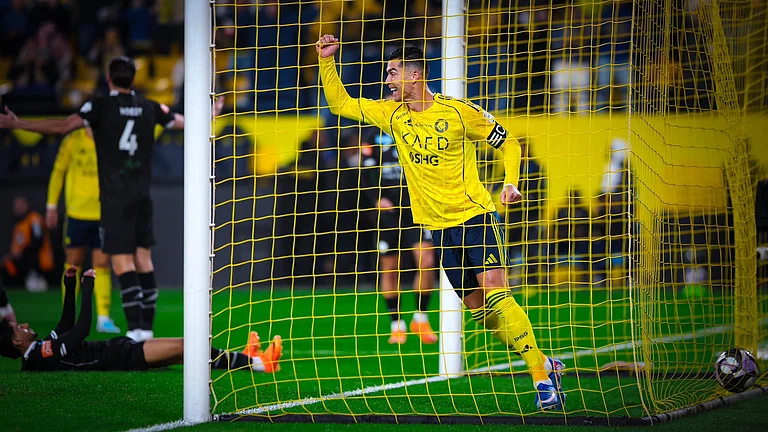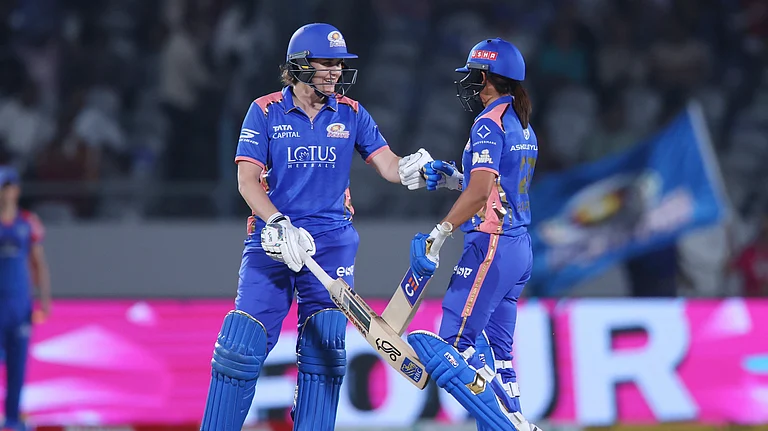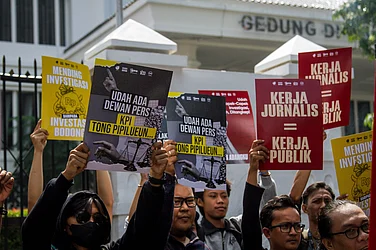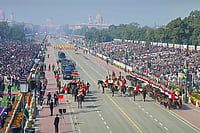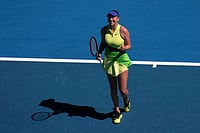The BRICS summit in South Africa is taking place at a time of major flux in international politics triggered by both the Ukraine war and the US-China rivalry. Many countries are caught up in the cross-currents of international diplomacy and BRICS --- Brazil, Russia, India, China, and South Africa are no exception.
One fallout of the changing times is that Russian President Vladimir Putin will not attend the Johannesburg summit for fear of arrest. In March this year, the International Criminal Court issued a warrant of arrest against President Putin for genocide and crimes against humanity in Ukraine. South Africa as a signatory of the Rome Statute is duty-bound to arrest him on setting foot on South African soil. In 2015, it failed to keep its commitment to the ICC by refusing to arrest Sudanese leader Omar al-Bashir who was also facing arrest. This time when the stakes are much higher since Putin is hated by the US and Europe, defying the ICC could have come at a cost. South Africa has remained neutral during the Ukraine war despite tremendous pressure from the US and its Western allies.
In the end, Putin decided to give the summit a miss and take part digitally while foreign minister Sergey Lavrov will represent Russia in South Africa. Prime Minister Narendra Modi, President Xi Jinping, and President Lula Da Silva will be hosted by South African President Cyril Ramaphosa.
Many in India have questioned the relevance of BRICS at a time of uncertainty, where there are various pulls and pressures on every country, and the world is facing major challenges. Moreover, with India-China ties at an all-time low is BRICS even relevant?
"Because the world is pulling in different directions, any gathering of leaders has a certain gravitas. It may or may not achieve concrete results, it may or may not bring the world together, but the fact that the wise men have gathered should be seen as a glass half-full," says former diplomat Rajiv Dogra. "At a practical level, the world is passing through grim times and there should not be unrealistic expectations."
On the relevance of BRICS, Ambassador Dogra says: "It is the only organization in the world which represents all continents except Australia. It has 40 per cent of the global population and almost 30 per cent of the world's GDP. But with all this support equipment, it has not achieved much in the last 20 years. BRICS is divided by its own suspicions. But still, if not BRICS what else?”
BRICS Expansion
On top of the agenda will be admitting new members into the closed group of five. The discussions had started as early as 2017, when China first pushed for BRICS Plus, to get more countries into the fold. India is not opposed to the move.
India wants the criterion for admission to be fixed before beginning the process. Foreign Secretary Vinay Mohan Kwatra made it clear on Monday, during a briefing ahead of the PM’s visit that ``India has a positive intent….and an open mind,’’ on the issue.
He said that as BRICS works on consensus, all member states “have to have full consensus on how they would want Brics expanded, what should be the guiding principles of that expansion [and] what would be the criteria for such an expansion.” Foreign minister Subramanyam Jaishankar had said earlier that expansion of BRICS was ``still a work in progress,’’ meaning the five members have not yet agreed on the rules for entry.
India is not on board with Brazil’s suggestion that those who wish to join must first be inducted informally as associates or observers before being inducted as full-fledged members. Though a number of countries have applied for membership at the top of the list are Iran, United Arab Emirates, Saudi Arabia, and Egypt. New Delhi has excellent relations with each of these nations.
Yet there is some slight concern in some quarters that as all these are members of the Organisation of Islamic Cooperation (OIC) at some point in the future BRICS can be used as a forum against India.
Batting for the Global South had been at the core of the BRICS philosophy. All five countries believed that the domination of existing global institutions was slanted to further the cause of the developed world. BRICS hoped to build an alternative system geared to serve the Global South.
BRICS was launched at a time of optimism where there was talk of investments flowing into the five emerging economies. The Asian century was at hand to challenge the existing economic order. Though BRICS began with a bang, it was unable to realise its potential. Its one achievement was the setting up of the New Development Bank, formerly called the BRICS Bank, with headquarters in Shanghai. Beyond that, there is little that BRICS can flag as its achievement. The world has changed considerably since the time that the idea of BRICS was conceived.
The tension between India and China since the military confrontation in Galwan in the summer of 2020, further undermined the significance of BRICS for India and resulted in New Delhi joining the "Quad" grouping consisting of US, Australia, India, and Japan to contain China’s aggressive moves in the Indo-Pacific. India-China bilateral ties are at the moment at a low point. Many in New Delhi believe that India should not be part of a China-dominated grouping. But the government realizes the worth of maintaining its strategic autonomy and collaborating with groupings that serve India’s national interests. Instead of ceding the space to China, India will continue to be a leader of the Global South that BRICS aims to promote.







